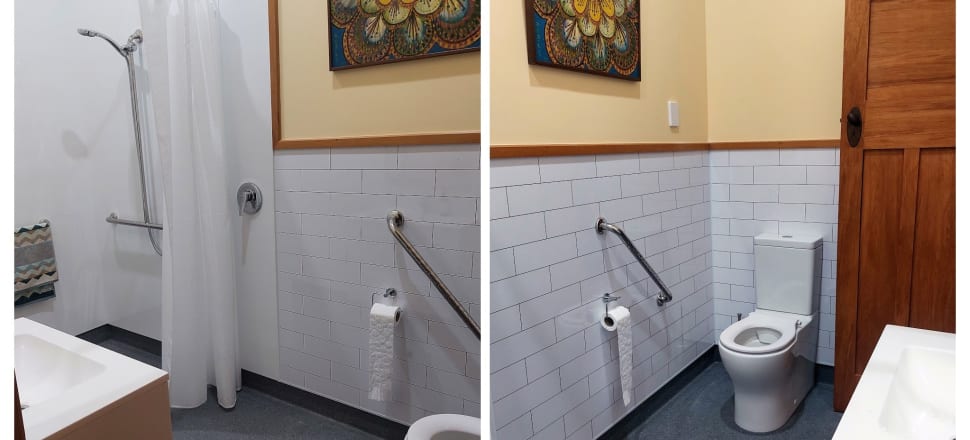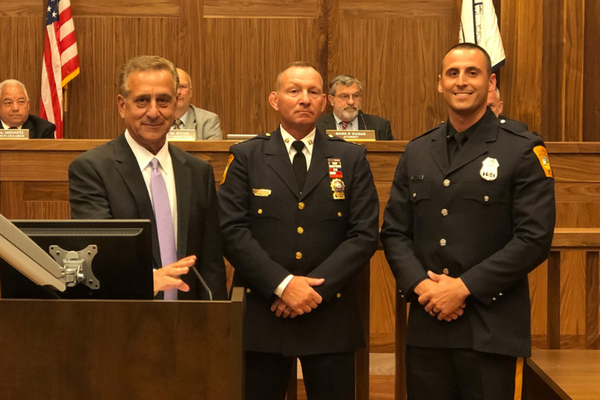
A court case to determine whether the government should be deemed the employer of people caring for their disabled family members has been pushed into 2023. Emma Hatton reports on how a simple employment question has become so complicated
The bathroom in Peter Humphreys' house isn’t gold-plated or adorned with expensive tiles shipped in from Europe.
It’s a standard-sized room with a toilet, a basin and a shower. There are also plenty of handrails for his 34-year-old daughter, Sian – who has Angelman syndrome – to hold on to. READ MORE: * Parents of disabled children take fight to Court of Appeal * Miscarriage of justice ruling for intellectually disabled man
But it took mediation, the Employment Relations Authority, an Employment court case and, Humphreys estimates, more than $200,000 to get to this stage.
“It has taken three years of our life fighting a foe that has a bottomless pot of money. It could be one of the most expensive bathrooms in NZ," says Humphreys.
And it was the bathroom that sparked this latest court action for his family.
“Sian, my daughter, weighs about 110 kilograms and she needs everything done for her … so we needed a bathroom modification."
An occupational therapist on behalf of the Ministry of Health confirmed a modification was necessary for health and safety reasons - usually something an employer would need to ensure.
But, under the law, Humphreys was employed by his daughter.
In December 2021 the Employment Court ruled the Ministry of Health was his employer and in June this year he finally got confirmation it would pay for the required changes.
“What a difference to our lives. It is now easy to toilet and shower Sian, and my wife is now able to do it.
“The ironic thing about this whole saga is that if Sian had received her disability from an accident then ACC would have funded the bathroom. But because we were gifted a child with a genetic disorder we were not eligible for a bathroom.”
But though the Ministry of Health agreed to pay for the bathroom renovation, it refused to admit he was their employee.
And early last month that challenge was heard in the Court of Appeal.
The Crown’s argument agreed severely disabled children should not have to employ their parents to access funding, but in the same breath said the ministry was not responsible either.
Lawyers detailed a hands-off relationship between how the funding was passed from the state purse to the bank accounts of the adult children, where they then “paid” their parents for the care.
Independent disability advocate Jane Carrigan said if family members were not caring for their children, the state would have to - meaning the state was in effect employing someone to do its work for it.
Likewise, if there were instances of abuse or neglect, the state would be required to step in.
She said sitting through the recent Court of Appeal case solidified why it had been so difficult to try to reason with this premise.
“I now understand it is the Crown's position that they have no responsibility for disabled people or their family. They do not know from day to day what they do, and they don't care.
“So, relying on the fact you don't care means you could not possibly be the employer of exploited family members.
“While it is an extraordinarily cynical position - we don't care so we could not possibly be the employer of the family members we exploit - it is also refreshingly candid. At least now we know where we stand.”
The hearing could not sit on its last day because one of the judges was sick, meaning the ordeal continues into 2023, and a decision on exactly where these families stand is pushed even further out.
They’re also realistic about any decision then being challenged in the Supreme Court.
So while the bathroom battle is finished, Peter Humphreys' war with the government drags on.
“When they priced the bathroom when I first highlighted the health and safety issue three years ago it was going to cost $27,000 … I’m not sure how much it has cost now.
“What I do know is that they had spent nearly $90,000 on legal fees and that was before the court decision and the engagement of Simpson Grierson for this year.
“I would estimate that it would be over the $200,000 mark by now. That is also excluding the costs of my lawyer fees and Ministry of Health staff time.”
The Humphreys appeal was being heard alongside Christine Fleming’s - a similar series of facts raising the ultimate question of who they are actually working for, and who is responsible for their rights as employees.
The premise itself sounds simple but is anything but.
There’s a myriad of internal process, assessments, policies, case managers, and ultimately confusion.
Carrigan has even filed a case with the Employment Relations Authority herself, arguing the Ministry of Health is her employer because she spends so much time helping families navigate the system.
When a similar case went before the courts in 2018, the judgment concluded with the following remarks: "We hope the ministry is able to find an effective way of streamlining the regime, thereby rendering it accessible for the people who need it most and those who care for them."
In short, things have become far more complicated than they need to be.
The responsibility for this now falls with the Ministry of Disabled People Whaikaha, set up as part of the mammoth Health NZ reforms.
When it was established, the Ministry of Health issued a PR piece explaining why a standalone ministry with its own dedicated minister was necessary.
“The current cross-government disability system presents barriers for many disabled people and whānau in achieving ordinary life outcomes. Supports can be fragmented and difficult to navigate, and multiple eligibility criteria for different services makes it difficult for disabled people to know what support services they are entitled to," it said.
“That’s why the government is introducing a Ministry for Disabled People – to lead the realisation of a true partnership between the disability community and government, and to help drive ongoing transformation of the disability system in line with the Enabling Good Lives (EGL) approach.”
Is it too much to ask then that good lives are actually enabled through this change? Somehow coming back and forth to Wellington for years to sit through legal action doesn’t feel particularly positive.
Put simply, don’t parents who have committed their adult lives to caring for their disabled children deserve a smoother ride?







